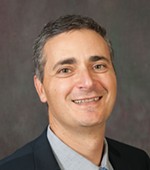Under Not So Healthy Texas Skies
Report on Texas health comes up mostly snake eyes
By Amy Smith, Fri., Nov. 26, 2004
At least we're consistent. The state's overall ranking of No. 35 is the same as last year's. The biggest change that occurred was for the worse, with Texas falling several notches, to 46th, for the high percentage of children living in poverty – 24% of all Texans under the age of 18, compared to 21% a year ago. The study follows the great debate in the 2003 legislative session over how much (or how little) funding to allocate to social-services programs. Lawmakers settled on the latter, with Medicaid and the Children's Health Insurance Program taking the biggest hits.
From a political perspective, Texas does a better job of producing presidents than it does turning out sound health care policy, as evidenced by our low rankings in the foundation's study. There are a few reasons Texas typically ends up at or near the bottom of these types of lists, said Anne Dunkelberg, a senior policy analyst and associate director at the Center for Public Policy Priorities. At its simplest, we get what we pay for. "We don't have a personal income tax, and not much of a business tax," Dunkelberg said. "We're at the very bottom of public spending."
Of course, Texas is a very, very long way from enacting an income tax, so creative solutions need to come into play if state leaders are serious about making us whole again. "I don't think we should expect great leaps coming forward in the [2005] legislative session," Dunkelberg said. But she noted a glimmer of hope in what appears to be a bipartisan commitment to restore funding to Medicaid and CHIP. "At least we'd be regaining the ground that we lost, and there is some chance that we might even be able to expand the coverage."
The state's No. 50 ranking on health insurance coverage has less to do with public spending than with employers' inability to extend insurance benefits to their workforce, which translates to huge numbers of working people going without. Nationally, 64% of the population has insurance through employers, spouses, or parents, Dunkelberg said. In Texas, only 55% receive some form of health coverage. "That's really what makes us different," she said. "People aren't getting insurance where they work, and there is nothing easy about turning that around."
One resolution for health care advocates in the New Year is a greater lobbying push for more preventive health care services for low-income, uninsured women. About 40% of Texas women between 18 and 65 live below 200% of poverty, Dunkelberg said, and about half of those women are uninsured.
Looking at the United Health Foundation's overall results, the nation's blue (Democratic) states generally fare better on health care than red states. This year's study lists only two red states, Utah and North Dakota, among the 10 healthiest – which include No. 6 Massachusetts, home of liberals John Kerry and Edward Kennedy; No. 3 Vermont (Howard Dean), No. 2 New Hampshire (the only red state to turn blue this election year) and No. 1 Minnesota, which consistently ranks among the very healthiest states. The 16 unhealthiest states, on the other hand, all went for President Bush. Minnesota was one of a handful of swing states whose voters ranked health care as their top priority, according to one pre-election poll.
On the upside for Texas, the state ranks among the top 20 for low rates of occupational fatalities, cancer deaths, and infant mortality. Also, the foundation gave Texas high marks for allocating 16.9% of its state health budget to public health.
The Minnesota-based foundation has measured states' health care performances since 1990, taking data from the Centers for Disease Control, the Census Bureau, and other agencies. The complete report is available on the foundation's Web site, www.unitedhealthfoundation.org.
Got something to say on the subject? Send a letter to the editor.










